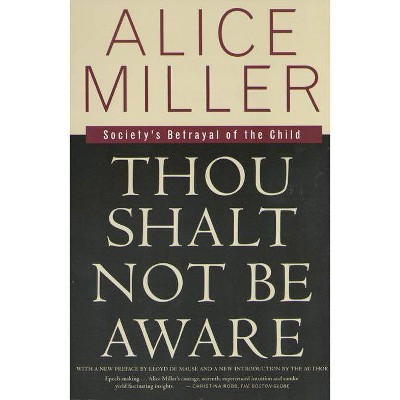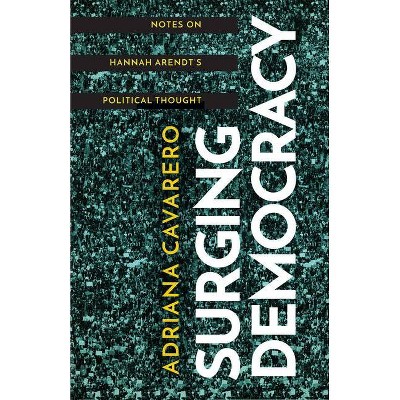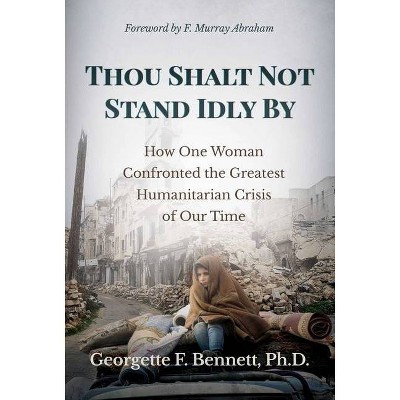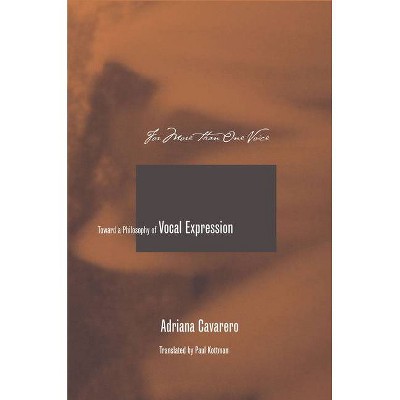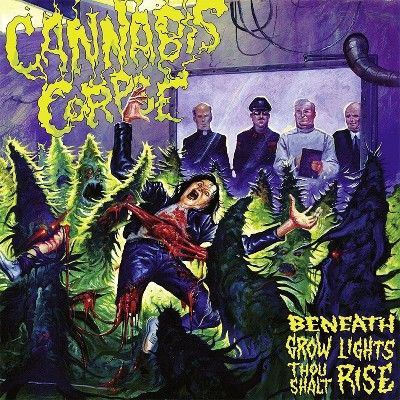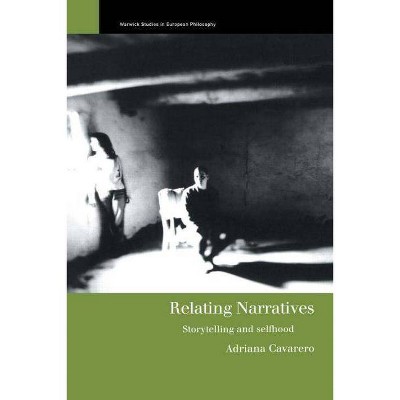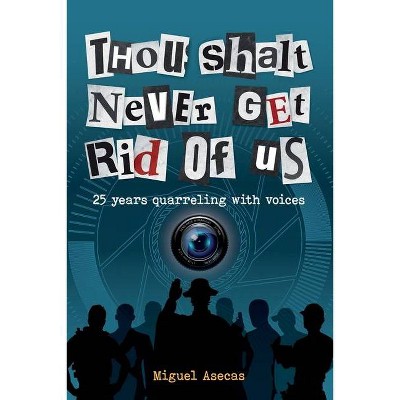Thou Shalt Not Kill - (Commonalities) by Adriana Cavarero & Angelo Scola (Paperback)
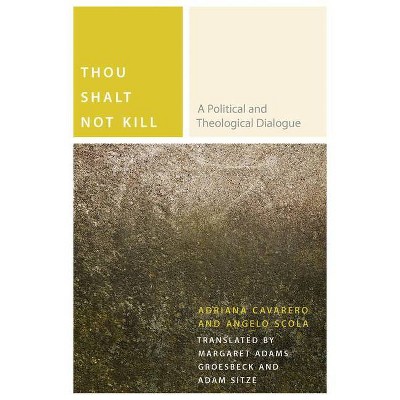
Similar Products
Products of same category from the store
AllProduct info
<p/><br></br><p><b> About the Book </b></p></br></br>This book is comprised of two essays on the biblical commandment against homicide. The first is authored by a Roman Catholic cardinal; the second by a leading Italian feminist philosopher. Together the two essays explore the religious, philosophical, political, historical, and moral significance of "Thou Shalt Not Kill" today.<p/><br></br><p><b> Book Synopsis </b></p></br></br><p>In this fascinating and rare little book, a leading Italian feminist philosopher and the Archbishop of Milan face off over the contemporary meaning of the biblical commandment not to kill. <p/>The result is a series of erudite and wide-ranging arguments that move from murder and suicide to just war and drone strikes, from bioethics and biopolitics to hermeneutics and philology, from Theodor Adorno and Max Horkheimer to Hannah Arendt and Michel Foucault, from Torah and Scripture to art and literature, from the essence of human dignity and the paradoxes of fratricide to engagements with Levinasian ethics. <p/>Less a direct debate than a disputation in the classical sense, Thou Shalt Not Kill proves to be a searching meditation on one of the unstated moral premises shared by otherwise bitterly opposed political factions. It will stimulate the mind of the novice while also reminding more advanced readers of the necessity and desirability of thinking in the present.</p><p/><br></br><p><b> Review Quotes </b></p></br></br><br><p>"Thou Shalt Not Kill represents an exceptionally original contribution to the study of contemporary Western culture seen from both a religious and a secular<br>feminist perspective."</p><b>-----Alessia Ricciardi, <i>Northwestern University</i></b><br><br>The remarkable dialogue Scola and Cavarero between demonstrates the ethical, theological, and the political stakes of the prohibition of killing. Interpreting the prohibition of murder in the context of Levinas's ethics, Scola proposes what Cavarero calls an 'absolutist' interpretation of such prohibition and argues for its applicability both to suicide and to reproduction. By contrast, Cavarero brilliantly demonstrates the incoherence of such an interpretation, particularly in the context of new reproductive technologies, medical technologies, and modern warfare. Instead of ethical relationality, such an absolute application of the prohibition of killing, all too often coexisting with the justifications of just or preemptive war, leads to the valorization of impersonal biologism. This is an indispensable book for anyone interested in the contemporary debates about ethics, biopolitics, and bioethics.<b>-----Ewa Plonowska Ziarek, <i>author of Feminist Aesthetics and the Politics of Modernism</i></b><br><p/><br></br><p><b> About the Author </b></p></br></br><br><strong>Adriana Cavarero </strong>is Professor of Political Philosophy at the University of Verona. Her books in English include <em>Horrorism: Naming Contemporary Violence</em>, <em>For More than One Voice: Toward a Philosophy of Vocal Expression</em>, and <em>Relating Narratives: Storytelling and Selfhood</em>. <p/><strong>Angelo Scola</strong> was appointed Cardinal in 2003 and Archbishop of Milan in 2011. He has also served as Rector of the Pontifical Lateran University. <p/><strong>Margaret Adams Groesbeck </strong>has been a reference librarian, bibliographer, and Head of Public Services in the Amherst College Library. She and Adam Sitze have translated essays by Carlo Galli and Robert Esposito. <p/><strong>Adam Sitze </strong>is Associate Professor of Law, Jurisprudence and Social Thought at Amherst College. He is editor of Carlo Galli's <em>The Janus Gaze: Essays on Carl Schmitt</em>. With Timothy Campbell, he coedited <em>Biopolitics: A Reader</em>.<br>
Price History
Price Archive shows prices from various stores, lets you see history and find the cheapest. There is no actual sale on the website. For all support, inquiry and suggestion messagescommunication@pricearchive.us
